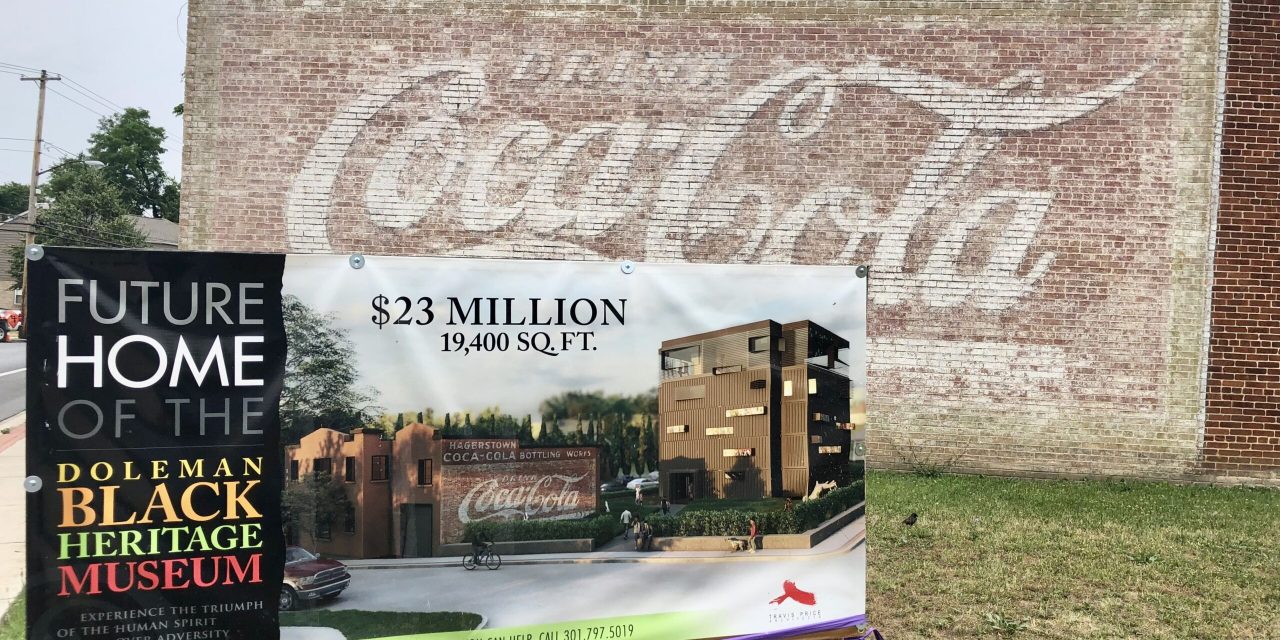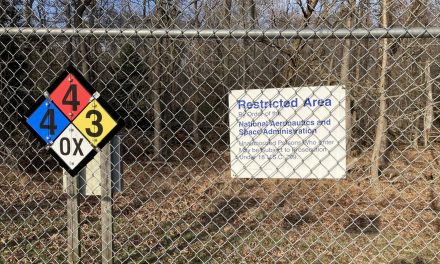By SAPNA BANSIL and BRADEN HAMELIN
HAGERSTOWN — Alesia Parson-McBean remembers the second time Willie Mays visited her hometown.
Regarded as one of the greatest baseball players who ever lived, Mays returned in 2004 to Hagerstown, Maryland, the site of his minor league debut. During Mays’ first visit in 1950, he endured racial epithets from fans and was required to stay apart from his teammates at a segregated hotel.
Fifty-four years later, the city hosted Mays for a public apology. However, it was marred when residents rebuffed attempts to rename the field at the now-demolished Municipal Stadium and an adjoining street after Mays.
For Parson-McBean, elected in 2005 as the city’s first Black councilmember, Mays’ experience helped explain why African Americans have felt disconnected from Hagerstown’s rich baseball tradition.
“I was like, OK, that must be the reason why no one from the neighborhood went to the games with any regularity,” she said.
The city’s racial dynamics have evolved considerably since Mays first came to Hagerstown nearly 75 years ago. When a new independent league ballpark arrives in 2024, blocks from the city’s historically Black Jonathan Street neighborhood, team officials face the task of cultivating a new relationship between baseball and Hagerstown’s Black community.
“I believe we’re in the midst of a shift in [the social climate] happening here,” mayor Tekesha Martinez said. “It’s been so broken apart for so long.”
An influential and growing Black community
Baseball’s return to Hagerstown next year will coincide with a moment of increased visibility and prominence for the city’s Black community.
In February, Martinez was appointed by the city council to complete the term of former mayor Emily Keller, who resigned to serve in Gov. Wes Moore’s administration. Raised in the Jonathan Street neighborhood, Martinez became Hagerstown’s first Black mayor.
“If someone like me can now be serving in the mayor’s office, it actually speaks volumes about what we have here,” Martinez said.
Since 2005, Hagerstown has also elected three Black women to the city council: Parson-McBean, Martinez and current councilmember Tiara Burnett.
The city’s Black community, redlined and underserved for much of the 20th century, has expanded in size and breadth. Following the passage of landmark civil rights legislation in the 1960s, Black residents began to leave the Jonathan Street neighborhood and populate new areas of the city.
As segregation laws and attitudes evolved, Black residents began establishing a footprint in the downtown community that will soon host Hagerstown’s new baseball team. African Americans were prohibited in the Jim Crow era from shopping in the city’s business district. Today, downtown features at least a handful of Black-owned businesses.
In 2021, Erika Bell opened Tribe Cold Press Juice Bar a few blocks from the stadium site. She anticipates that ballgames will bring in new customers. She also hopes to serve some of her hip-hop-themed drinks – including the Green Latifah – at stadium concession stands.
“Literally, the stadium will be my backyard. … We’re looking forward to that because that’s only going to bring more people to us, as well,” Bell said. “I feel like being a Black-owned business, we need to take advantage of all things Hagerstown.”
It is not yet clear whether Hagerstown’s new team and management staff will mirror the diversity of its community. The four-person ownership group, as well as general manager David Blenckstone, are all white.
Owner James Holzapfel said he expected the team’s staff to diversify but did not identify any specific measures the ownership group would implement to do so.
“Pretty much every small town likely had some things happen 100 years ago that they’re not proud of, but I feel Hagerstown is in a good place to that point,” Holzapfel said. “The ownership group is committed to diversity and inclusion. Thankfully the world has come a long way over the last century.”
Chuck Domino, president of Domino Management and Consulting LLC, a minor league consulting firm that has been retained by the team, said the front office would welcome diversity.
“My preference is always that the staff has to be successful, no matter how diverse they are,” he said. “If we can have a diverse staff and have the best people, that’s great. But we advertise positions, we interview for those positions, and you can’t you can’t make a certain ethnicity or race interview for positions.”
“I’m not sure whether the African American community has kind of lost interest in baseball and that is reflected also in people that want to be employed by baseball teams.”
A chance to finally honor Black history
“Blacks were in this area before this was Washington County,” Marguerite Doleman wrote in her 1976 pamphlet, “We, the Blacks of Washington County,” considered the first written history of the area’s African American community.
Doleman, who died in 2000, amassed a collection of artifacts – slave records, photographs, figurines and many others – that will soon serve as the basis for the Doleman Black Heritage Museum, commemorating the Black community’s deep and enduring legacy in Western Maryland. While a permanent site is not expected to open until 2025, part of Doleman’s collection is temporarily on display at 33 W. Washington St.
The opening of the Doleman Museum will signal a shift in how Hagerstown acknowledges and celebrates its extensive Black history. The city traditionally demolished Black landmarks and neglected its Black cemeteries, according to Emilie Amt, a professor emeritus at Hood College who has studied the history of African Americans in western Maryland.
“A lot of the built heritage of the Black community in Hagerstown has been knocked down, erased, built over and not preserved, whereas quite a lot of the white community’s historic buildings have been preserved,” she said.
What appears to be missing from Doleman’s collection and writings is any reference to Hagerstown’s Black baseball history. On at least seven occasions between 1935 and 1955, barnstorming Negro League teams played each other at Municipal Stadium, according to local historian Bob Savitt.
However, it is difficult to establish a more complete history of Black baseball in Hagerstown, as records are incomplete and white journalists rarely bothered to cover it.
“There were Black baseball teams in our area but they weren’t given much coverage by the local newspapers, ” Savitt said.
The ownership group for Hagerstown’s new team has expressed interest in commemorating the more prominent aspects of the city’s Black baseball tradition. Owner Howard “Blackie” Bowen said he has been searching for memorabilia from Mays to display in the new ballpark. He is also interested in renaming a road near the stadium from Antietam Street to Willie Mays Way.
Bowen believes times have changed since the last time Hagerstown considered naming a city street after Mays.
“That doesn’t mean that the problem goes away, but I think [renaming the street] will be met with less resistance at this point in time,” he said.
Will the new team draw Black fans?
While the stadium may offer Hagerstown’s Black community economic benefits and a recognition of its history, it remains to be seen if the on-field product will be a draw to Black fans.
Throughout many levels of baseball, Black participation in the sport is approaching a nadir. In Major League Baseball, 6% of players on 2023 Opening Day rosters were Black, the lowest in 68 years, according to USA Today.
In terms of fan interest, an MLB spokesperson said the league is not aware of any demographic data about who attends or watches games. However, a 2020 poll by Morning Consult showed that of fans who have a very favorable opinion of MLB, 60% are white, compared to just 16% who are Black and 20% who are Hispanic.
Andy Smith, president of the community outreach group Brothers Who Care, has observed those trends play out in western Maryland. Smith said he knew of few African Americans in Washington County who have played or coached baseball at the collegiate level.
“I get the impression sometimes that Blacks really aren’t interested in baseball,” he said.
“I think that’s how some of us look at it: that baseball is for white people. How does it become part of your subculture if you’re not given an opportunity to be in it as you grow?”
“I think that’s how some of us look at it: that baseball is for white people. … How does it become part of your subculture if you’re not given an opportunity to be in it as you grow?”
Domino believes the stadium’s affordability, rather than a targeted marketing strategy, will draw a diverse set of fans to ballgames.
“All we can do is try to do our best to make it affordable for all races, all ethnicities, all walks of life. … We just do our best to be inclusive for everybody, and the way we do that is affordability,” he said.
Martinez said that when she and Burnett were first elected to the city council in 2020, she avoided commenting and voting on the new stadium. It was an issue that the Jonathan Street neighborhood “did not feel a part of,” she said.
Today, she hopes the stadium is an opportunity to fully engage Black residents in the city’s baseball tradition.
“Success [for the stadium] would look like great games happening with the entire city feeling included in it,” Martinez said.






Recent Comments